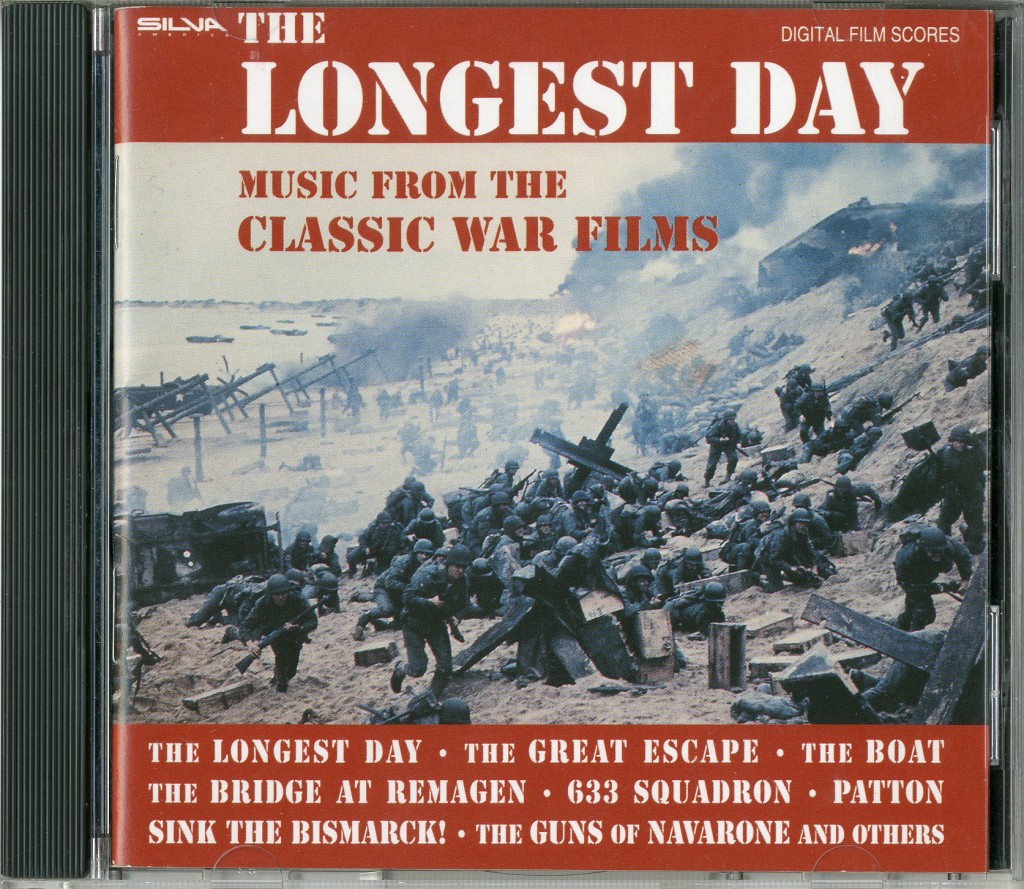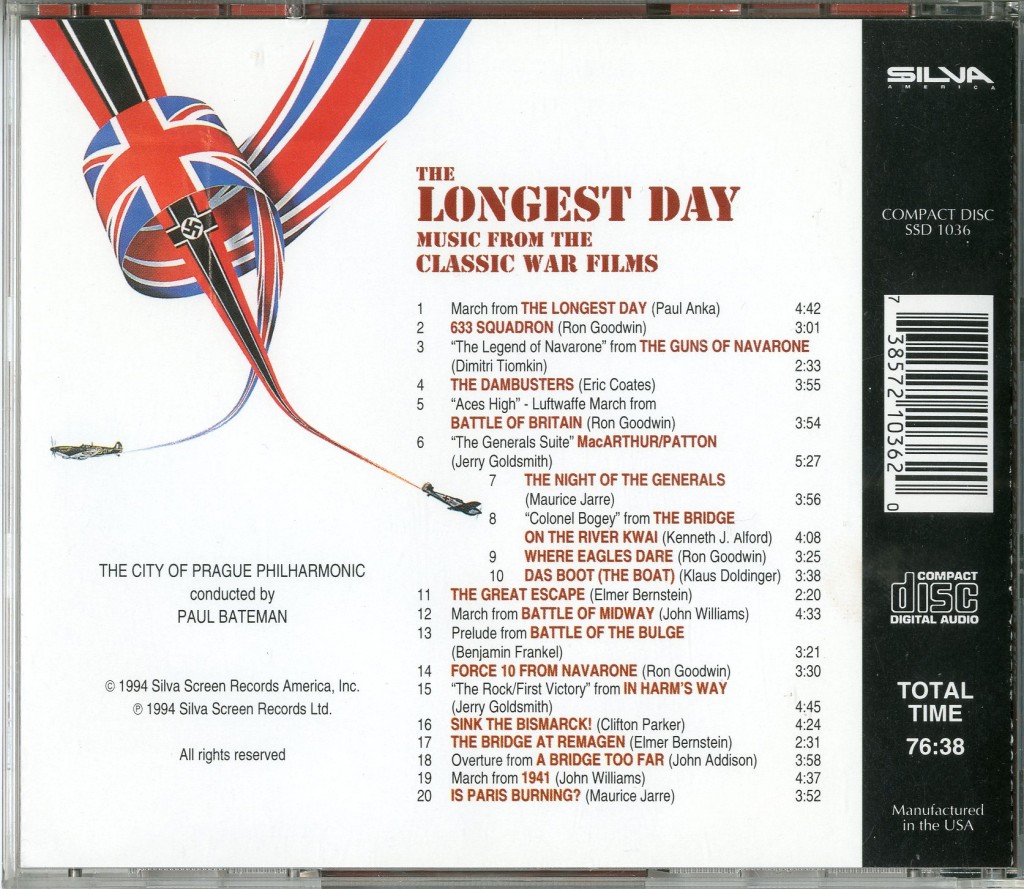As opposed to regular soundtracks, compilation soundtracks offer listeners the opportunity to sample music from various composers or movies, centered around a particular theme, performer, genre or other element. The compilation I have chosen to highlight in this issue is titled “The Longest Day – Music from the Classic War Films.” It was recorded in 1994 by conductor Paul Bateman and the prestigious City of Prague Philharmonic Orchestra. And while these are not the original film scores themselves, this is a very clear and accurate rendition of their music.
The majority of the war films represented on this disc are from the 1960s and 1970s, with an emphasis on British composers and films. Thus, Ron Goodwin authors four of these tracks, while more obscure composers such as Clifton Parker and Eric Coates are also heard.
Ron Goodwin is an excellent choice for this collection, as his best work is to be found in the movies noted here, as well as Operation Crossbow and the wild comedy Those Magnificent Men in Their Flying Machines. Goodwin’s theme for 633 Squadron, with a soaring melody that suggests flying and repetitive, echo-like verse endings that indicate infinite space, is often included in war and aviation music compilations. His “Aces High” from The Battle of Britain, is a regal, stately tribute to flyers engaged in that conflict — it’s actually the Luftwaffe March, but it proved to be so popular as a concert piece that Goodwin gave it a more patriotic name for British venues. Perhaps more familiar is his rhythmic, dark-toned, ever ascending theme from Where Eagles Dare. There isn’t much melody to it but it is devilishly effective as a musical backdrop. Finally, Goodwin’s theme to Force 10 from Navarone is featured. Much lighter in tone, the theme is one of my favorites, one which I prefer to Dimitri Tiomkin’s original Guns of Navarone theme, the third track on this album.
Some of this music will be instantly familiar, such as Tiomkin’s Guns of Navarone theme, the “Colonel Bogey” March from The Bridge on the River Kwai (it’s sometimes credited to Malcolm Arnold, but was written by Kenneth Alford), Elmer Bernstein’s iconic, jaunty theme to The Great Escape and John Addison’s melodic overture to A Bridge Too Far. This album’s greatest asset, however, is the inclusion of more obscure themes such as Eric Coates’ bouncy Dambusters theme, Bernstein’s almost-Western style theme to The Bridge at Remagen and the rarely heard, nautical sounding imperial march to Midway by John Williams. It’s hearing this music, often for the first time since seeing the movies, that is such a treat.
My favorite composer, Jerry Goldsmith, is represented twice, once in medley form. In concert, Goldsmith often combined his stately MacArthur and Patton themes together as they are heard here; it’s remarkable how well they fit into each other. Two of Goldsmith’s themes from In Harm’s Way are paired back to back in the fifteenth cut, demonstrating his versatility for heroic and dramatic scoring.
As is proper for war films, marches dominate the musical landscape, yet other motifs appear as well. Klaus Doldinger’s Das Boot theme is electronic in nature, played on a synthesizer. Maurice Jarre’s theme to Is Paris Burning? transforms from dark music of invasion into a waltz, and is actually quite beautiful.
The only quibbles I have with this CD are the omissions (where are The Caine Mutiny or Tora! Tora! Tora!?) and that some of the tracks sound too similar in terms of orchestration. Yet this compilation is a great introduction to grand themes of glorious war movie music. (9:3).


